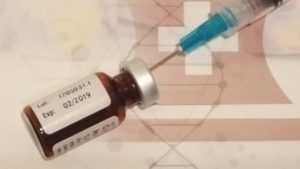AmerisourceBergen Specialty Group Admits To Distributing Millions of Misbranded Oncology Drug Products
 The U.S. Department of Justice announced that AmerisourceBergen Specialty Group (ABSG) admitted in federal court to illegally distributing millions of misbranded oncology drug products. ABSG is a wholly-owned subsidiary of AmerisourceBergen Corporation, one of the country’s largest wholesale drug companies and number 11 on the 2017 Fortune 500 list.
The U.S. Department of Justice announced that AmerisourceBergen Specialty Group (ABSG) admitted in federal court to illegally distributing millions of misbranded oncology drug products. ABSG is a wholly-owned subsidiary of AmerisourceBergen Corporation, one of the country’s largest wholesale drug companies and number 11 on the 2017 Fortune 500 list.
According to court records and documents, between 2001 and 2014, Medical Initiatives Inc. (MII) and Oncology Supply Company (OSC), both Alabama-based subsidiaries of ABSG, prepared millions of pre-filled syringes (PFS) containing oncology supportive care drugs, specifically Aloxi, Anzemet, granisetron, Kytril, Neupogen, and Procrit. Oncology centers in all 50 states received the PFS for use on their immunocompromised cancer patients undergoing chemotherapy treatment.
As set forth in the court records, to make PFS, OSC purchased FDA-approved drug products directly from the manufacturers. OSC sent the vials of drugs to MII. MII removed the drug products from their original glass vials and repackaged them into plastic syringes. MII combined the excess drug product in each vial, called overfill, to create extra doses in a process known as pooling. Manufacturers include overfill to ensure, among other things, that there is sufficient drug product to create the correct dosage, taking into account the possibility of air bubbles and the viscosity of certain drugs. The business model of OSC and MII took advantage of the overfill in the drug vials and turned it into profit.
According to the court document, drug manufactures designated many of the vials that MII used to make PFS as “single use” vials, meaning that the manufacturer only guaranteed the sterility of the drug product if the vials were breached once with a syringe. The conditions and practices used by MII created multiple problems, including non-sterile conditions in their cleanroom, unacceptable levels of bacteria and/or floaters of unknown origin and composition in PFS, volume in syringes not matching labels, PFS leaking, cracking and/or temperature exposure from the shipping process, and distributing PFS to non-patients. Additionally, MII incentivized technicians for speed. Technicians received bonuses for meeting or exceeding volume targets but did not receive bonuses for error reduction, cleanliness or any other quality improvement or safety metric.
According to the facts introduced as evidence during the trial, ABSG also failed to register MII as a repackager or manufacturer with the U.S. Food and Drug Administration (FDA). ABSG portrayed MII to their customers and state agencies as a state-regulated pharmacy that dispensed drugs pursuant to valid prescriptions in compliance with local state law. MII only changed the container, wrapper, and labeling of the original drug products, which according to the Food, Drug, and Cosmetics Act (FDCA) classified MII as a repackager.
ABSG agreed to pay a total financial penalty of $260 million, a $208 million criminal fine plus a $52 million criminal forfeiture. ABSG entered into an agreement with the Office and DOJ’s Consumer Protection Branch to maintain a compliance and ethics program to increase accountability for individuals and corporate board members, to increase transparency, and to strengthen ABSG’s compliance with the FDCA.
Assistant U.S. Attorneys Alixandra E. Smith and Ameet B. Kabrawala are in charge of the prosecution. Senior Litigation Counsel Patrick Jasperse of the DOJ Consumer Protection Branch provided assistance.